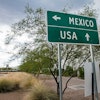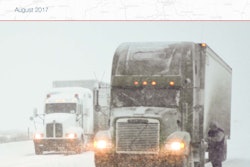
Between 80-90% of U.S. consumers said they expect a recession within the year in light of the Coronavirus disease (COVID-19), and 89% believe their geographic area is affected by the outbreak, according to a survey of 2,608 American consumers fielded on March 18.
The survey by L.E.K. Consulting and Civis Analytics is representative of the general U.S. population and designed to shed light on how consumers’ habits, spending and sentiments are being affected by COVID-19.
The findings portray the dramatic prospective effect on travel. The nearly 89% of Americans who said they’re being affected by the COVID-19 situation have already canceled or ruled out between 50-75% of their 2020 travel spending. Even those few who said their area isn’t affected are dropping their 2020 travel spend by more than one-third (37%). Travel spend includes airlines, hotels, rental cars, cruises and more.
“COVID-19 is, of course, first and foremost a human and social crisis. Since businesses play such critical roles in employing, supplying and responding to individuals and society, we think it’s important to contribute insights on what consumers are thinking, how their spending is changing and how they can be better served,” says Manny Picciola, managing director at L.E.K. Consulting. “While the true net effect of the outbreak is impossible to determine at this point, we believe moment-in-time snapshots are helpful, and we will endeavor to provide those.”
“We are in truly unprecedented times, with a level of uncertainty that many of us have never experienced,” says Ellen Houston, managing director of applied data science at Civis Analytics. “Data can help us regain at least some control, allowing us to understand not only where people’s heads are at right now, but eventually predict where people’s heads will be – meaning businesses can make better informed decisions about the future.”
Americans said the effect on non-travel spending is more muted. Most people said they are spending about 4-6% less than they would if it were not for COVID-19. Interestingly, people who believe the severity of COVID-19 is most critical (18% of the population) are spending significantly – 17% – more. That jump probably relates to stockpiling, and the others’ dip may relate in part to restrictions on leaving home.
While it’s not surprising that consumers said they’re pulling back 40% to 50% on such expenditures as dining out, outside-home entertainment and outside home fitness, it’s notable that consumers reported significant drops in other, less “go outside” items and services:
- Consumer electronics – down 25% to 30%.
- Takeout/delivery – down 10% to 15%.
- Beauty – down 5% to 10%.
Some notable spending increases
At the same time, Americans said their monthly spend is increasing markedly in certain areas:
- At-home fitness – up 35% to 40%.
- Medicine and medical supplies – up 20% to 25%.
- At-home entertainment – up 15% to 20%.
- Groceries – up 15% to 20%.
- Pet supplies – up 10% to 15%.
And, consumers said they anticipate their online grocery spend to reach 40% of their total grocery spend if the outbreak worsens, and that their online non-grocery spend will reach 45%.
“As restrictions and social norms evolve in response to COVID-19, consumers are of course adjusting their broader behaviors, reporting to us more ‘at-home’ activities like cooking, watching TV, social media browsing and exercising at home. These changes create a need for brands to explore how they can meet consumers where they are and engage with them in novel ways, like live digital fitness classes,” says Maria Steingoltz, managing director at L.E.K. Consulting.



















